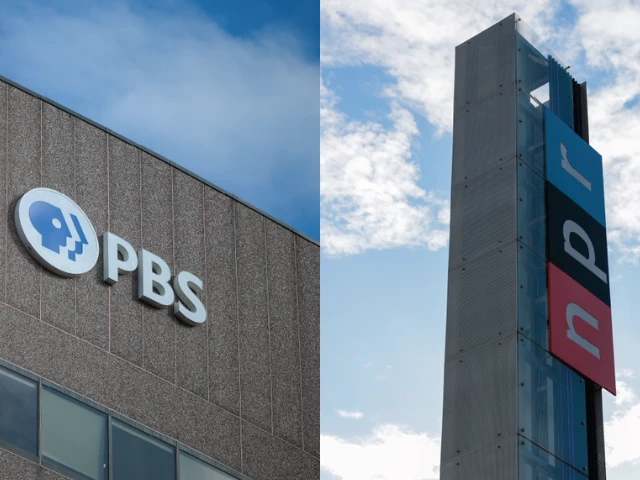NPR, PBS face funding threat as House Republicans cite political bias
NPR and PBS representatives were pressed on past editorial decisions and content

Republican lawmakers intensified their calls to dismantle and defund the United States’ public broadcasting system, with leaders from NPR and PBS defending their editorial integrity and public service missions in a tense congressional hearing.
During testimony before the House’s Delivering on Government Efficiency (DOGE) subcommittee, Georgia Representative Marjorie Taylor Greene said, “We believe that you all can hate us on your own dime,” arguing against federal support for what Republicans described as politically biased media.
The remarks come a day after President Donald Trump expressed support for eliminating funding for the Corporation for Public Broadcasting, which distributes nearly $500 million in federal funding annually to public media outlets.
NPR and PBS leaders, including CEOs Katherine Maher and Paula Kerger, were pressed on past editorial decisions and content, particularly NPR’s limited coverage of Hunter Biden’s laptop in the run-up to the 2020 election.
Maher, who joined NPR in 2024, conceded the network had made a mistake in not covering the story more seriously.
“We made a mistake,” she said, also acknowledging regrets over past anti-Trump social media posts written before her tenure.
The hearing reflected longstanding Republican criticisms that public broadcasters skew left in their news programming. Rep. James Comer of Kentucky cited his past support for NPR but said he no longer recognises the content, describing it as “disinformation.”
Greene criticised PBS for content she deemed inappropriate, including a “drag queen” photo mistakenly uploaded to a local station’s website and documentaries featuring transgender individuals. Kerger clarified that such content was part of adult programming and not targeted at children.
Democrats on the panel accused Republicans of using the hearing to distract from larger national security concerns. “If shame was still a thing, this hearing would be shameful,” said Rep. Stephen Lynch of Massachusetts.
Some lawmakers resorted to satire. Rep. Robert Garcia of California asked if Elmo, a character from Sesame Street, had ever been a member of the Communist Party. “He’s a puppet,” Kerger replied. “But, no.”
Maher told the committee NPR’s weekly listenership had dropped from 60 million in 2020 to 42 million in 2024, though it has risen slightly in the past year. She denied that the network is politically biased and highlighted efforts to diversify viewpoints in coverage.
Critics of public broadcasting have cited an essay by former NPR editor Uri Berliner, published Wednesday, in which he called for the network to stop accepting taxpayer funding and to acknowledge its progressive leanings.
Kerger warned that cuts to federal funding could devastate smaller PBS stations, particularly those in rural areas. “This is an existential moment for them,” she said.
Following the hearing, the Committee to Protect Journalists defended NPR and PBS, calling them essential to public access to reliable information.
CEO Jodie Ginsberg said, “Casting them as propaganda machines undeserving of taxpayer support is a dangerous mischaracterisation.”

1737017947-0/biden-(4)1737017947-0-100x90.webp)
1733311399-0/biden-(2)1733311399-0-100x90.webp)




















COMMENTS
Comments are moderated and generally will be posted if they are on-topic and not abusive.
For more information, please see our Comments FAQ